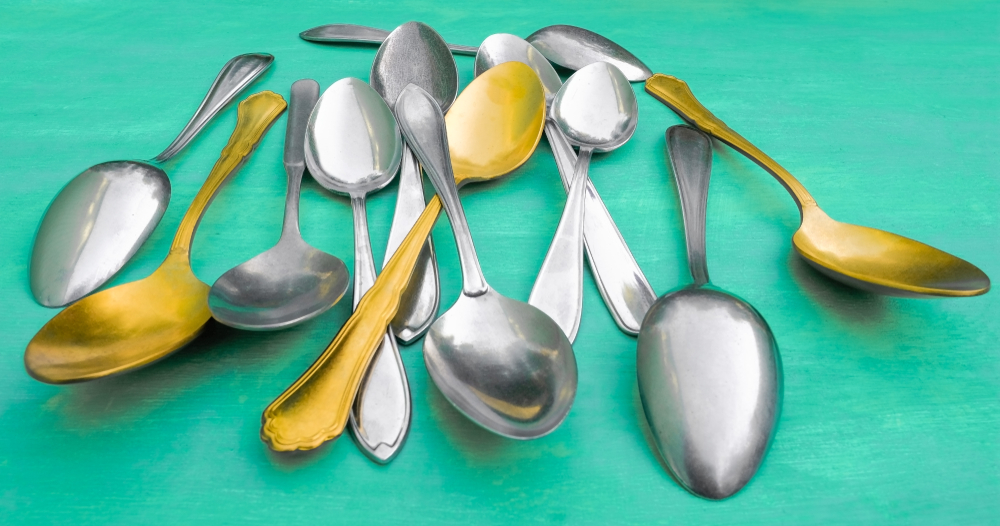Autism Acceptance Month: ‘Getting my FM spoons lined up’ by Chris Barnes, IWFM EDI Focus Group
News
- EDI,
- Facilities
03 April 2023

I often talk openly about my autism journey. I get lots of questions but also pats on the back with how I cope. Often the response is around how people don’t see me as autistic. They say, ‘Ohhh it's your super power’ which sometimes I love, but most of the time it makes me cringe. Then I go into how flipping fantastic I am at masking it. About how I’ve learnt how to behave in certain areas and how I’m ‘getting away with it’. I use that term because I know how much I have to put into work and social situations. And how I only really open up to those close to me about life’s struggles. Then I think I’m over sharing, shut down and don’t mention it for weeks.
Let’s be clear, it’s a struggle. There's a reason there are so few autistic people in full time work. The world is not designed for us. It takes so much time, energy and thinking just to function and get on with daily tasks. Sometimes just getting out the door is a major struggle, therefore getting through a day can be a relief. That can even extend to getting through the week. However, sometimes weeks fly by, and I think I’m getting away with it.
Personally, my approach is to plan, plan, plan, and the art of routine - daily, weekly and monthly routines. In FM, month end is full on. From review meetings to site visits to client relations to team meetings, before you know it, it's month end again. So, I plan my busy review weeks and sandwich them with quiet days to recover. For me, having thinking time is key. If I have major events or a new site visit, I back them up with a quiet office day right after to recover and process. Often my weekends are just recovering. No talking, coupled with a long walk or run. Just me and my head so I can come back and do it all again on Monday morning.
Through my years of experience, learning and research, I've found using 'spoon theory' helps explain how I divide my energy up.
Christine Miserandino's spoon theory is often used to make sense of what it feels like to have a limited amount of energy. It focuses on having to make choices to avoid, or at least minimise, burnout and fatigue. She developed this metaphor to explain her chronic autoimmune disease (which I also have a few of), but it was adopted by the autistic community to explain the similar energy limitations that autistic people face.
Spoon theory starts with the idea that people facing a chronic illness or other conditions, such as autism, start their day with a set number of spoons. This is in contrast to others who may have a seemingly unlimited number of spoons. Every time you do something, you'll use one of your spoons. When you use a spoon, it's gone. There aren't any more spoons in the drawer that you can use to replace it.
So, from my experience, I now know how many spoons it takes me to attend an event for example. I know how people act at events and I know what’s expected of me. I put my best smiley mask on i.e. I use a few of my spoons up. But I also know I have no spoons left after the event. I know I need to switch off and wait until my spoon drawer is filled back up.
So again, when people ask me about being autistic, and they say ‘But you performed well' in that meeting or event, it's because I’ve saved my spoons ready. They don’t see me after. They don't see the recovery or the whole day of overthinking every single detail of every single conversation. Just as they haven't seen me before with noise cancelling earphones on for six hours, sitting as still as I can, desperately trying not to use up my spoons. Or worrying the night before about if I'll have any spoons at all.
For those reading who may wish to adopt this lifestyle, being a 'spoonie' does come with challenges:
- I may not get the same number of spoons every day
- my spoons seem to be different sizes
- sometimes my spoons aren’t worth as much today as they were yesterday
- I can try to save spoons for tomorrow but sometimes things happen that take all your spoons away.
In summary, if you do know any neurodivergent people, please consider their spoons. If they are really flying high, remember they are using up all their spoons. Please do give them time to refresh. We all need time to recover. We are not all superheroes – well, not all time anyway.
Chris Barnes
Associate Director, Pareto FM
